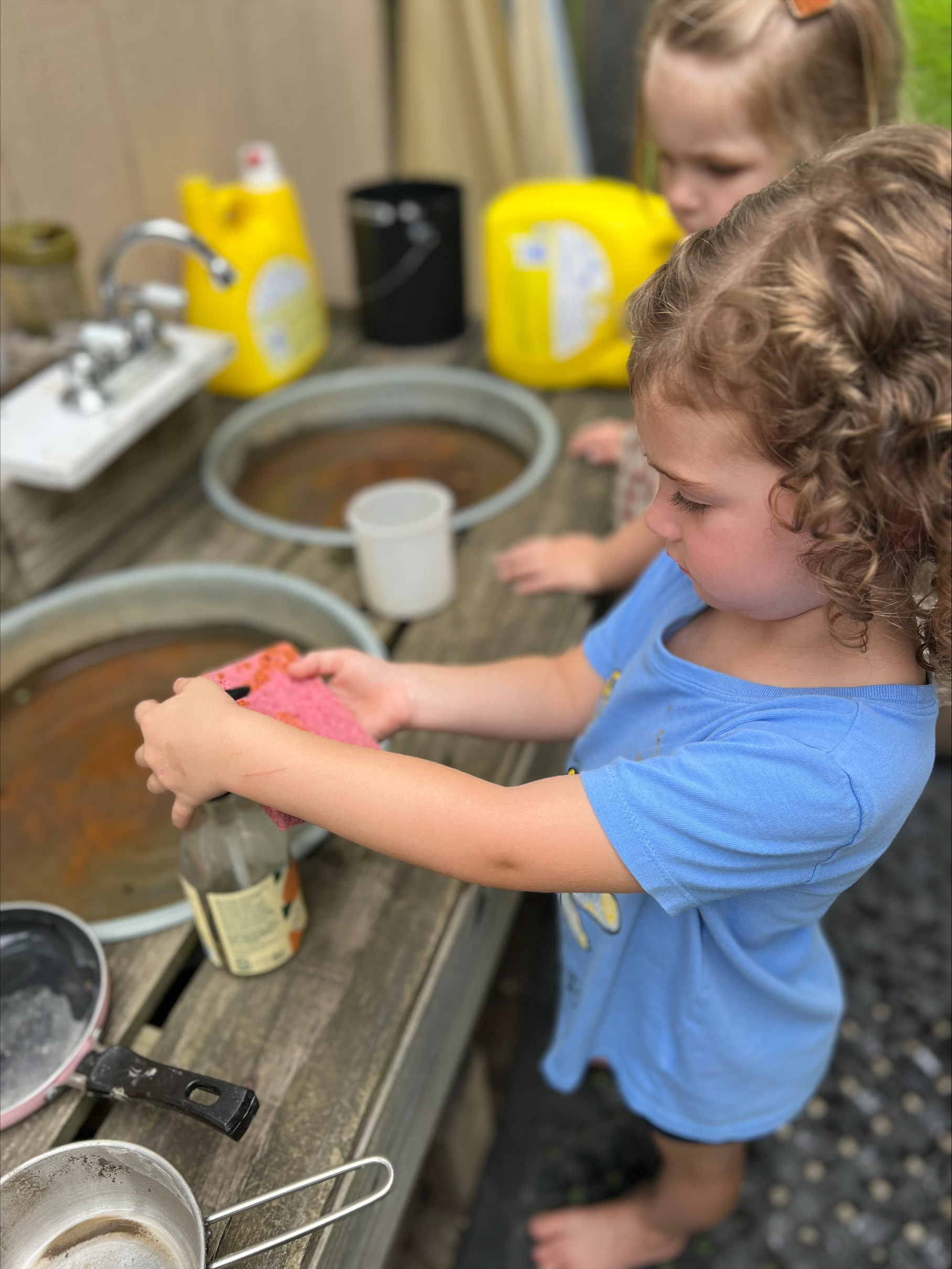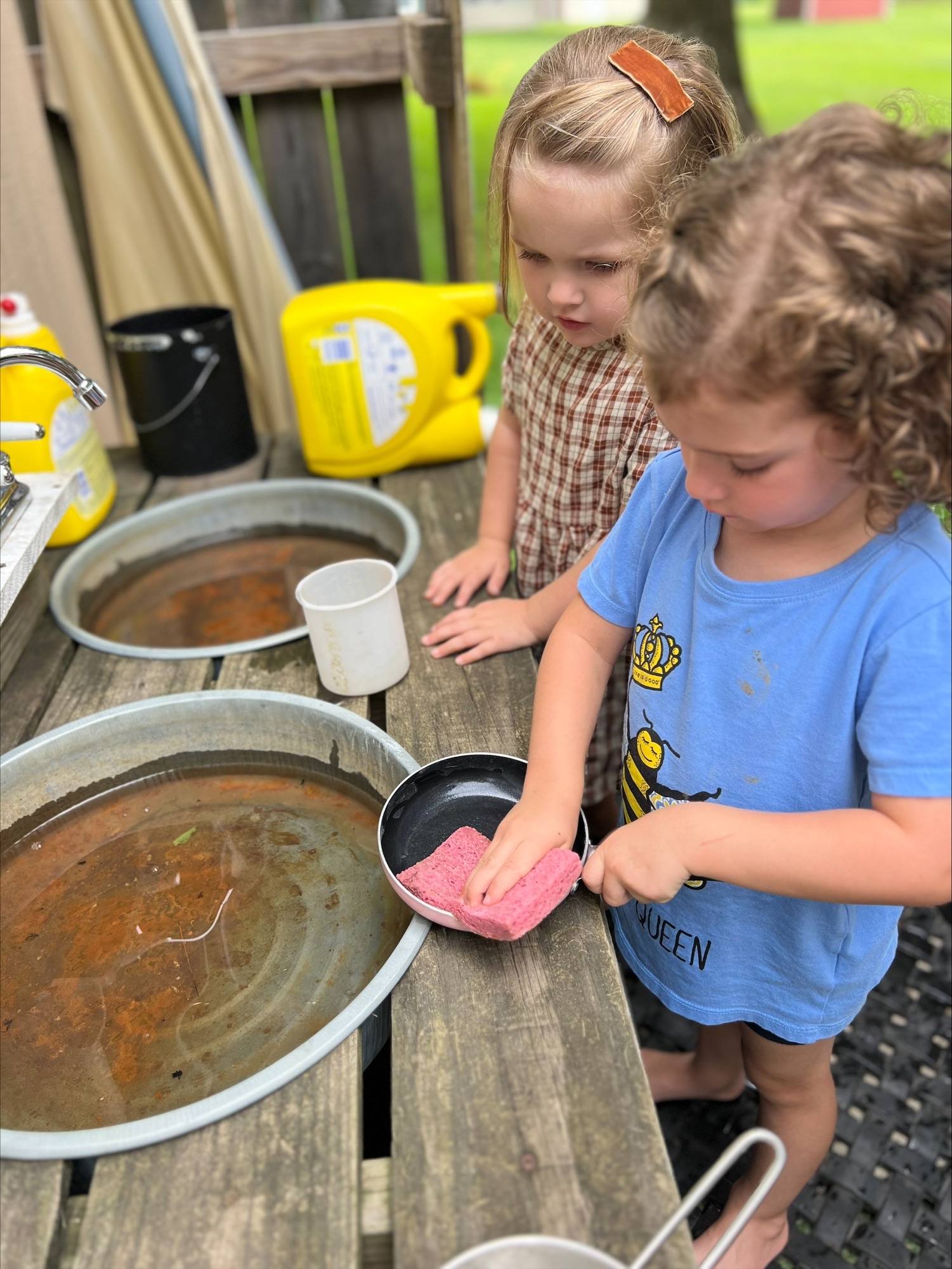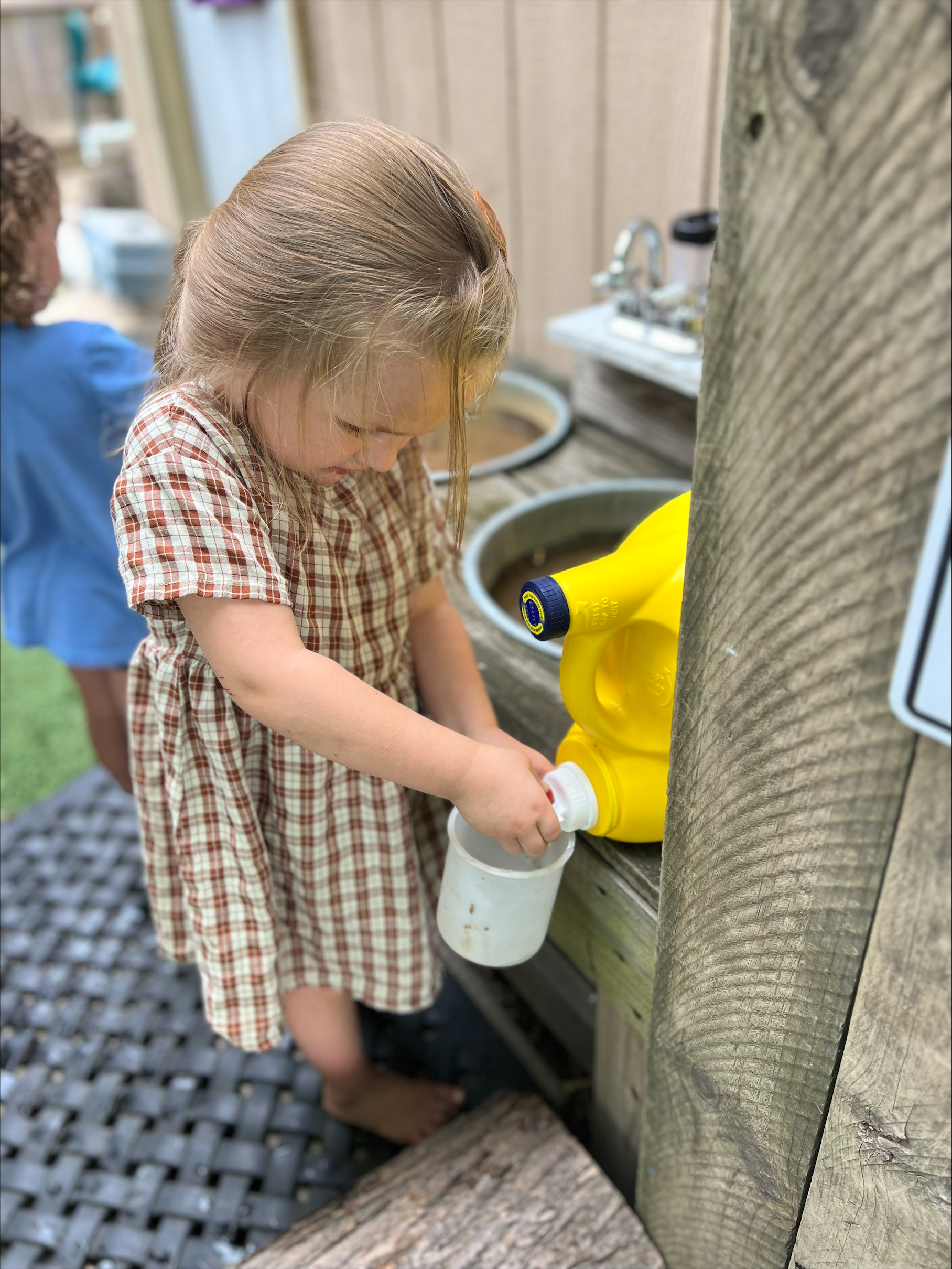When children are given the responsibility to wash dishes, they are able to develop essential life skills such as responsibility, independence, and self-care. Allowing children to participate and contribute to the family household tasks instilling a sense of accomplishment and belonging.
To get started, set up a simple pretend sink or washing station with two basins – one with dish soap and warm water, and another with clean rinse water. Have a water source nearby so that children can add more water as needed. It’s important to establish a process for emptying and refilling the basins. As children explore and wash the dishes, they will learn how warm water creates suds while cool water cuts suds, how much water is needed to clean, and how to use a sponge to scrub and ensure cleanliness.
Through dish washing, children develop an internal sense of order as they follow a long sequence of steps. It takes a high degree of self-control to only collect one pitcher of cool water and one pitcher of warm water to pour in the two basins. They also coordinate their whole body in walking back and forth to the outdoor play sink, sometimes carrying a full pitcher, and in balancing as they shift their weight moving the dishes from one basin to the other.
As with many Practical Life materials, the opportunity for repetition helps to develop strong concentration. Children not only learn how to care for their own belongings, but they also learn how to help others.



